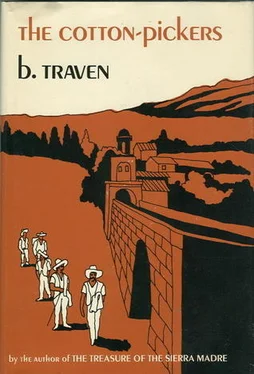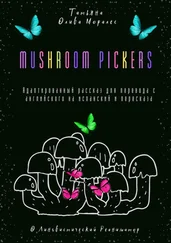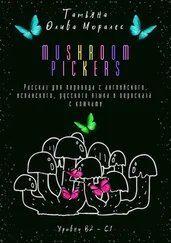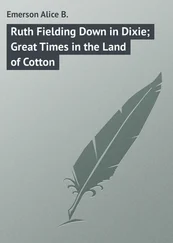B. Traven - The Cotton-Pickers
Здесь есть возможность читать онлайн «B. Traven - The Cotton-Pickers» весь текст электронной книги совершенно бесплатно (целиком полную версию без сокращений). В некоторых случаях можно слушать аудио, скачать через торрент в формате fb2 и присутствует краткое содержание. Год выпуска: 1969, Издательство: Hill and Wang, Жанр: Проза, на английском языке. Описание произведения, (предисловие) а так же отзывы посетителей доступны на портале библиотеки ЛибКат.
- Название:The Cotton-Pickers
- Автор:
- Издательство:Hill and Wang
- Жанр:
- Год:1969
- ISBN:нет данных
- Рейтинг книги:3 / 5. Голосов: 1
-
Избранное:Добавить в избранное
- Отзывы:
-
Ваша оценка:
- 60
- 1
- 2
- 3
- 4
- 5
The Cotton-Pickers: краткое содержание, описание и аннотация
Предлагаем к чтению аннотацию, описание, краткое содержание или предисловие (зависит от того, что написал сам автор книги «The Cotton-Pickers»). Если вы не нашли необходимую информацию о книге — напишите в комментариях, мы постараемся отыскать её.
—Book World
The Cotton-Pickers — читать онлайн бесплатно полную книгу (весь текст) целиком
Ниже представлен текст книги, разбитый по страницам. Система сохранения места последней прочитанной страницы, позволяет с удобством читать онлайн бесплатно книгу «The Cotton-Pickers», без необходимости каждый раз заново искать на чём Вы остановились. Поставьте закладку, и сможете в любой момент перейти на страницу, на которой закончили чтение.
Интервал:
Закладка:
“I couldn’t see Gonzalo now. I couldn’t see anything at all. I kept throwing the spears in the direction where I figured he must be. I no longer cared whether I hit him or not. All that worried me was that I shouldn’t be the first to stop. So, as the spears kept coming from the other side, I kept throwing them back.
“Suddenly, as the fire flared up for an instant, I saw Gonzalo turning around to look for the spear, which evidently had missed him widely. He went back a few steps, found it, picked it up, and then, as he turned toward me to throw it, fell on his knees as heavily as if someone had knocked him down with a terrific blow.
“I didn’t throw the spear which I had in my hand because I was only too glad to stand it upright and lean on it; otherwise I’d have dropped to the ground. If Gonzalo had gotten to his feet and thrown his spear, I couldn’t have lifted my arm to ward it off or to throw it back.
“But Gonzalo remained on his knees. Sam ran to him and called out: ‘Thel’, now, I’ve lost my five pesos. Antonio, you’ve won. Gonzalo’s given up.’
“I dragged myself to a box near the fire, but hadn’t the strength to sit down on it. I dropped to the ground by the side of it. Sam dragged Gonzalo to the fire and gave him some water, which he gulped down.
“I now saw that his chest was covered with blood. But I was past being interested in anything around me. My head dropped, and as I opened my eyes I saw that my chest was as streaked with blood as Gonzalo’s. But I didn’t care. Nothing seemed to matter.
“Sam brought me the forty pesos and stuffed them into my pocket. I saw him also put five pesos into Gonzalo’s pocket. I had the feeling that all this was happening a long way off.
“We stayed like this for a good half hour, maybe a whole hour. The fire died down.
“Then Sam said, ‘I’m going to lie down and get some lest.’
“I echoed these words, as they were my own: ‘Yes, I’m going to lie down and get some rest.’
“I saw Gonzalo get up, too, and staggering and clutching like me, he clambered up the ladder and into the house.
“When I’d dropped to the floor and just as I was dozing off, I heard Gonzalo say: ‘If you leave early in the morning and I’m not up, don’t bother to wake me. I want to get a good long sleep. I’m beat. Anyway, I can’t travel with you on the train; I haven’t got the fare.’
“Before dawn, Sam gave me a nudge. It was time to be off. We had to be at the station by eight o’clock that evening; otherwise we’d lose two days. It was still pitch dark. I could see nothing in the hut, not even Gonzalo. We didn’t wake him but let him sleep undisturbed, and, picking up our bundles, were off just as dawn was breaking.
“A short distance from the house we met the Indian who wanted to buy Abraham’s chickens.
“Well, there you are, Gales, that’s the story, the true story.”
“Antonio, you’d never have gotten Gonzalo to wake up that morning,” I said.
“I’ve told you the true story, Gales. We can go and check it with Sam right now. He knows the truth.”
“It’s not necessary to check it, Antonio. Let’s leave it at that. I believe you. I know the truth when I hear it.”
The music in the band-shell started up.
I closed my eyes. I wanted to shut out the harsh electric lights. I saw Gonzalo lying on the floor, banished from the world of the living and the hopeful, his hand clasping to his breast a ball of raw, blood-blackened cotton.
Cotton.
Antonio evidently had been watching me without my being aware of it.
“Why are you weeping, Gales?”
“Shut up! You… you must be seeing things. You do get some crazy ideas into your head.”
He was silent.
“This damned funeral music, Antonio! Why can’t they play ‘The Merry Widow’ or ‘Yes, we have no bananas’! Life is fun! Funeral marches are for corpses, comic opera for the living. Come on, Antonio. It’s nearly ten. What did that son-of-a-bitch say? ‘Be to work on time,’ he said, for one peso twenty-five the day!”
Book Two
11
The owner of the Aurora Bakery, Señor Doux, always looked miserable, as if he were suffering from chronic malaria. He was off-color and went about his business like someone mortally sick. But in truth he was an active, hearty man; he could at one sitting eat enough for twelve strong men. He got up at four in the morning and breakfasted on a quart of milk and six fried eggs with ham. Then he had a good-sized glass of brandy and went off to the market for the day’s supplies. Apart from the bakery and pastry shop he had a flourishing café, where, in addition to the usual iced drinks, soda pop, ice creams, wine, and beer, you could get breakfast, the comida lunch of the day, and supper. The bakery and café were on the ground floor of Doux’s two-story building. Above them there was also a hotel, but it was not run by Doux; he sublet it, and every day he had some stimulating conversation with his tenant. You only had to overhear this conversation to understand why Doux always looked so very yellowish green in the jowls.
The usual subject of the argument was water. In the tropics water is not only one of the most precious of all things, it is also the object of continual strife. Nature fights for water as a matter of life and death; animals tear each other to pieces for water, or so forbear on its account that the jaguar will not harm the doe at the water’s edge but lies in wait at a respectful distance for its return.
The struggle of plants and trees for water has a gentleness. But when human beings fight over water they outdo in cunning savagery all other earthly creatures.
Doux’s building was constructed, in the Latin-American colonial style, around a quadrangle, in which lush tropical plants grew, some of them to a height above that of the upper floor. The café occupied the front portion of the ground floor; the right wing contained the kitchen and storerooms; the left housed the bakery and pastry shop, as well as the dormitory of the bakery workers. The rear section was the proprietor’s residence.
The hotel section, all of the upper floor, extended in a rectangle over the courtyard, with all rooms opening onto a continuous balcony looking into the greenery. The rooms on the street side of the hotel opened also onto a second balcony that ran along the whole front of the building.
On the roof were two large water tanks, each served by a separate well. One was for the lower floor, the other for the upper. Each had its own motor-driven pump. When the dry season came, the well for the bakery and café ran dry, but the hotel well had ample water. The café and bakery couldn’t operate without water, and that was where the fun started. Señor Doux wanted to pump the water from the hotel tank into his tank, maintaining that, after all, he was the owner of both wells. His tenant, however, didn’t concede this; it was in his contract that the hotel tank was at his exclusive disposal. He was afraid that if he let the café take water from his tank, he might some day find himself without water, and thus be obliged to deny his guests the privilege of baths. A hotel-keeper in the tropics who has to refuse baths might just as well close up his hotel.
Both tanks were covered and padlocked; the tenant had a key for his, and Señor Doux had a key for the café tank. Doux therefore had no alternative but to force the lock of his tenant’s tank at night, lower a hose into the tank, connect the hose to his own pump, and start it running. The tenant was usually awakened by the sound of the pump, and so pandemonium broke out in the middle of the night. The hotel guests joined in; so did the café clients, who were often flushed with drink and ready to pick a fight and take sides. Bottles, chairs, loaves of bread, chunks of ice, and horrible curses and maledictions came flying through the air. Meanwhile, the pump was neutral and indifferent to the uproar as it went to work and filled Señor Doux’s tank. At that point, Doux shut off the pump, retracted the hose, and peace reigned once more — until morning, when the tenant would take measures to secure the hotel tank for the night. These measures were always in some way undone by Señor Doux.
Читать дальшеИнтервал:
Закладка:
Похожие книги на «The Cotton-Pickers»
Представляем Вашему вниманию похожие книги на «The Cotton-Pickers» списком для выбора. Мы отобрали схожую по названию и смыслу литературу в надежде предоставить читателям больше вариантов отыскать новые, интересные, ещё непрочитанные произведения.
Обсуждение, отзывы о книге «The Cotton-Pickers» и просто собственные мнения читателей. Оставьте ваши комментарии, напишите, что Вы думаете о произведении, его смысле или главных героях. Укажите что конкретно понравилось, а что нет, и почему Вы так считаете.











